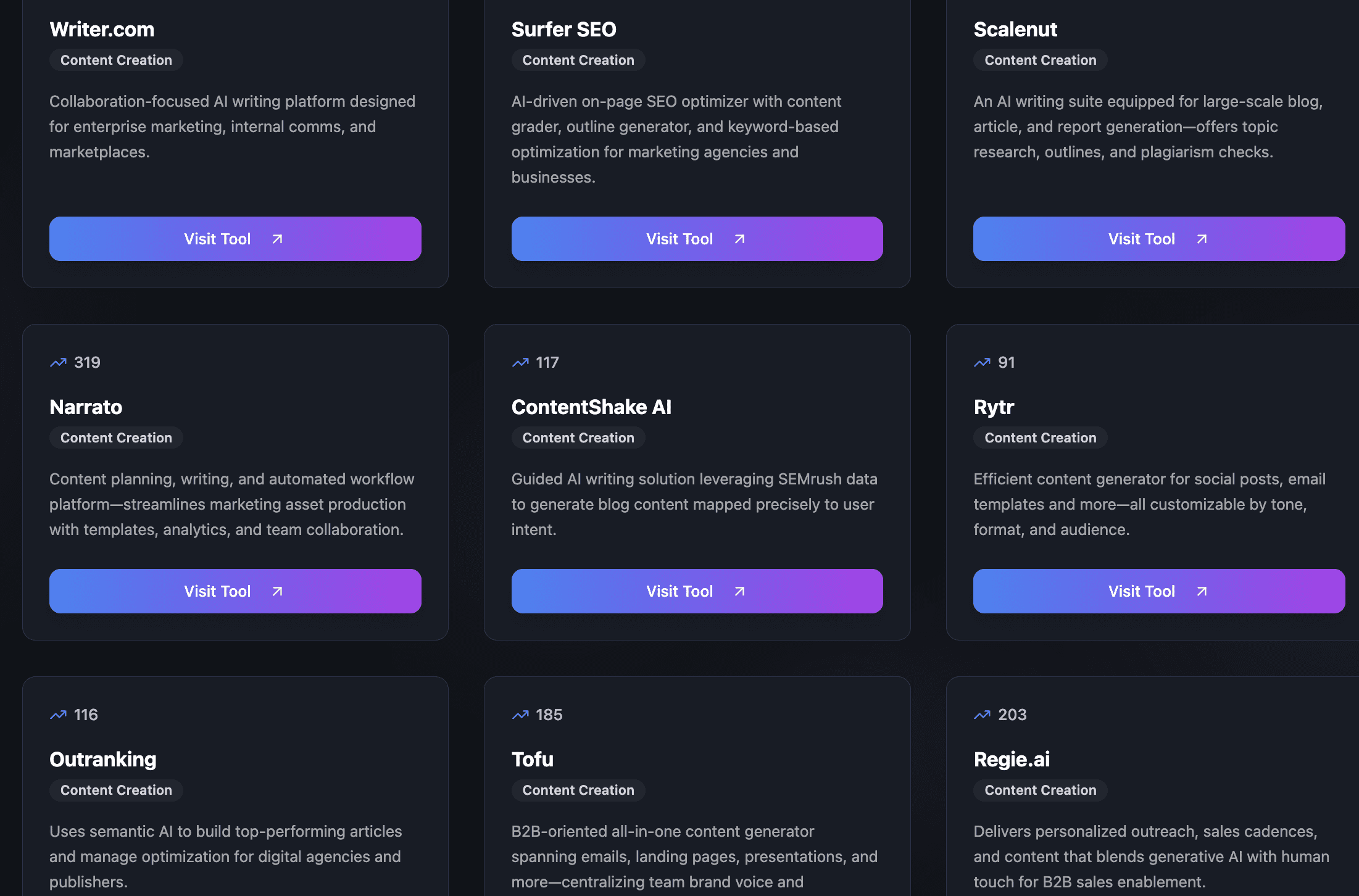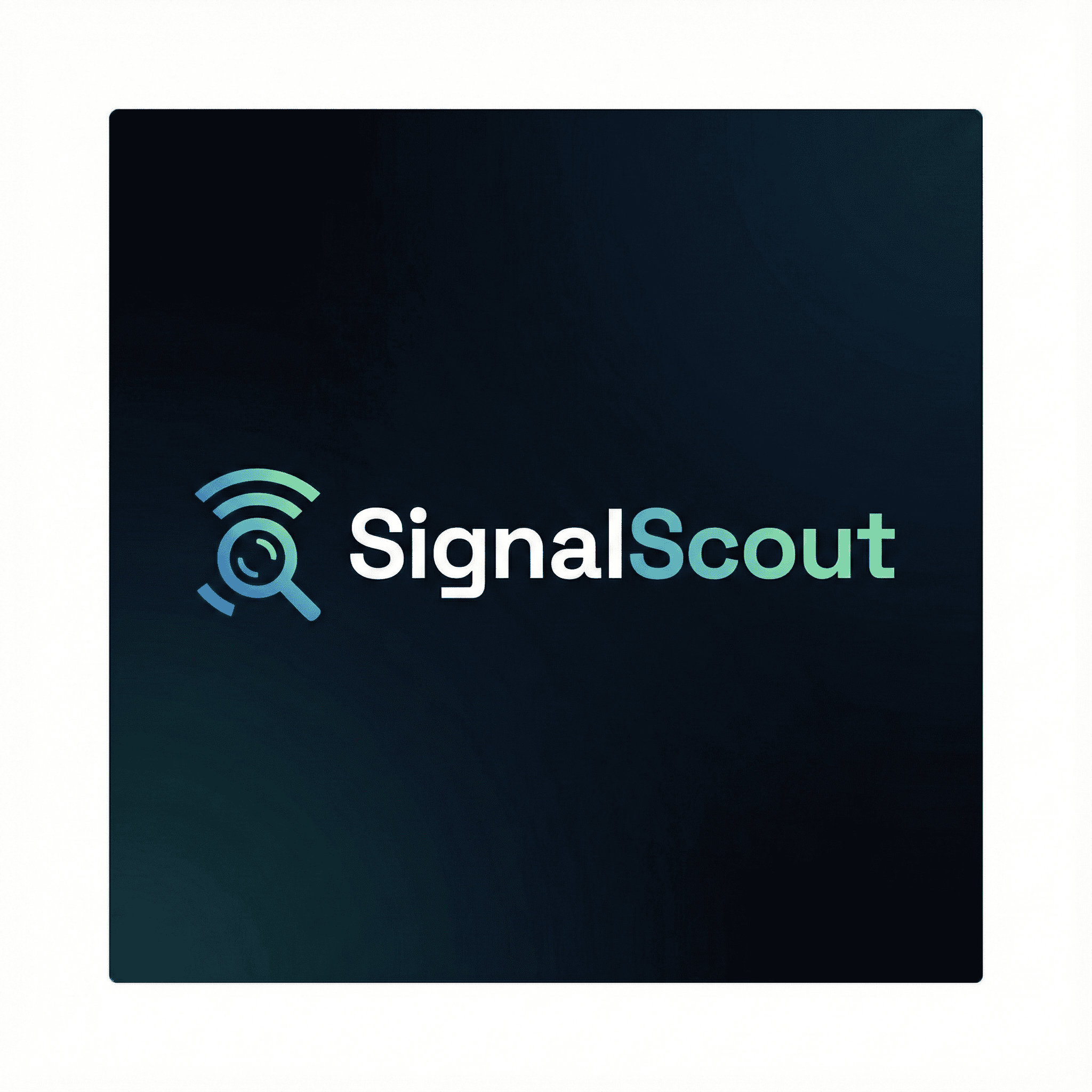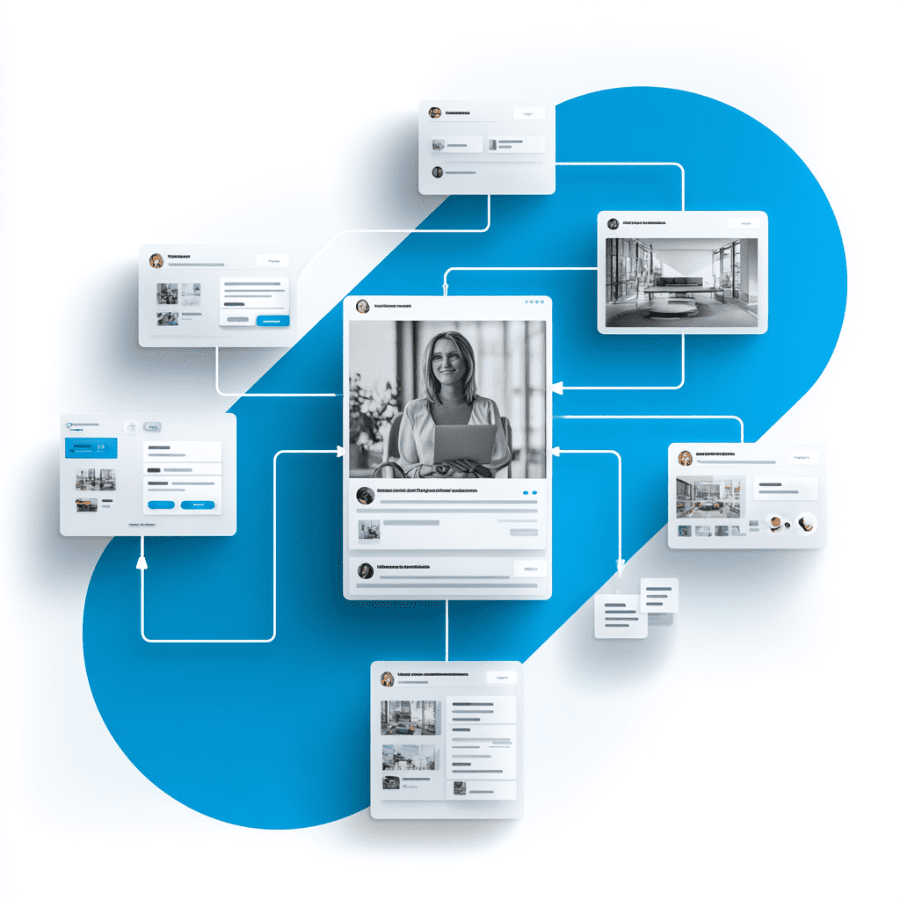TL;DR:
Artificial intelligence is reshaping how B2B brands create, personalize, and distribute content. From adaptive marketing strategies to AI-powered optimization tools like Jasper AI, Surfer SEO, Writer.com, and Mutiny, companies are scaling creativity, improving buyer alignment, and accelerating ROI across the content lifecycle.
The Adaptive Era of B2B Marketing
According to Ogilvy’s Adaptive GTM Framework, only 29% of organizations pivot effectively when markets shift. Traditional campaign cycles—short, reactive, and disconnected from long-term buyer needs—are giving way to adaptive systems that blend continuous learning with AI-driven insight loops.
In this new landscape, AI isn’t replacing marketers—it’s augmenting them. Tools for predictive analytics, real-time content optimization, and voice or text generation are now core to maintaining agility and relevance.
LinkedIn’s B2B Benchmark Report (2024) reinforces this shift: over 60% of B2B leaders are reorganizing their teams to integrate AI for creativity, measurement, and personalization. The modern B2B marketer isn’t just data-savvy—they’re AI-fluent.

Why AI Matters for B2B Content Marketing
1. Long Buyer Journeys Demand Smart Content
As Geeky Tech’s B2B Inbound Marketing Guide explains, B2B buyers engage with multiple touchpoints—from awareness to decision—across months or even quarters.
AI tools allow marketers to personalize messages at every stage, analyze engagement signals, and deliver the right content (blogs, demos, case studies) exactly when the buyer is most receptive.
2. Data Fatigue Meets Predictive Intelligence
Marketo’s Marketing 2025 Research found that marketers see machine learning and analytics as the most important skills for the near future.
Why? Because AI can process complex buyer intent data faster than any human analyst—predicting what content will convert, where buyers drop off, and how to optimize spend dynamically.
3. AI Search Is Changing Content Discovery
As the SEO in 2025 report notes, generative AI and “zero-click” search are now dominating Google and ChatGPT-style discovery engines.
This means B2B content isn’t just competing for clicks—it’s competing to be cited by AI in snippets and summaries. Structured data, E-E-A-T (Expertise, Experience, Authority, Trust), and semantic clarity are non-negotiable for visibility.

4 AI Tools Powering the Future of B2B Content
1. Jasper AI — Your Scalable B2B Content Assistant
Jasper is designed for enterprise-grade content operations, delivering tailored copy for SaaS, professional services, and demand-gen campaigns. Its multi-tone generation and brand voice control help large teams maintain consistent messaging across emails, white papers, and ads—ideal for aligning marketing and sales teams in adaptive GTM models.
Why it matters: Jasper integrates with Surfer SEO and CRM tools, turning campaign strategy into executable content in minutes.
2. Surfer SEO — Data-Driven Content Intelligence
Surfer SEO brings AI-assisted content grading and optimization to B2B workflows. By analyzing SERP competitors, keyword intent, and NLP-driven topic coverage, it ensures every article aligns with search and user expectations.
Insight: As the SEO and AEO in 2025 guide highlights, semantic understanding and schema markup are crucial for AI parsing. Surfer’s content score directly reflects these factors, making it a bridge between human creativity and machine comprehension.
3. Writer.com — Collaboration Meets Compliance
Writer.com focuses on AI-enabled collaboration for enterprise teams, ensuring every piece of content meets brand, tone, and compliance standards. In an era where content is distributed across geographies and verticals, Writer.com ensures consistency while leveraging machine learning to analyze readability, inclusivity, and clarity.
Why it’s a differentiator: Writer’s enterprise-grade governance features help align AI use with brand and legal policies—a growing priority cited in LinkedIn’s 2024 B2B study.
4. Mutiny — Real-Time Personalization for B2B Experiences
Mutiny uses AI to dynamically personalize web content for each B2B visitor. It analyzes firmographics, behavior, and CRM data to adapt landing pages, messaging, and offers in real time.
Why it’s powerful: As Ogilvy’s Adaptive GTM framework argues, continuous adaptation is the key to marketing success. Mutiny embodies this by ensuring every visitor experiences content that feels made for them—boosting engagement and conversions without adding manual effort.
Building Adaptive Content Workflows with AI
Here’s what a forward-thinking B2B content stack might look like in 2025:
| Stage | AI Role | Tool Example |
|---|---|---|
| Research | Trend and intent analysis | Surfer SEO |
| Creation | Drafting and tone alignment | Jasper AI, Writer.com |
| Optimization | SEO and readability scoring | Surfer SEO |
| Personalization | On-site dynamic experience | Mutiny |
| Measurement | Predictive engagement and ROI | GA4 + AI analytics |
When used together, these tools support the “adaptive loop”—a cyclical model of creation, testing, learning, and recalibration. That’s the essence of the AI-powered B2B marketing system.

SEO and AI Optimization: A Unified Strategy
The SEO in 2025 report emphasizes the importance of schema markup and FAQ structures for AI visibility.
B2B marketers should ensure every asset—from blog posts to webinars—includes:
- FAQ schema and HowTo markup
- Author-rich snippets linked to LinkedIn profiles
- JSON-LD structures for products, services, and case studies
- “Answer-first” content under each H2 for snippet optimization
This approach not only satisfies Google’s AI Overviews but also trains generative models to cite your brand as an authoritative source.
The Human Element: Empathy and Expertise
Despite the automation wave, LinkedIn’s research shows that “curiosity, collaboration, and creativity” remain the most critical marketer traits.
AI can write, but only humans can empathize, contextualize, and connect ideas meaningfully. The best results come when B2B marketers use AI as a co-pilot—never a replacement.
From Campaigns to Continuous Intelligence
B2B marketing in 2025 is moving from campaigns to continuous intelligence.
The winners will be those who blend adaptive strategy with AI precision—building content systems that learn, iterate, and grow alongside their audience.
So, whether you’re optimizing content with Surfer SEO, generating campaigns through Jasper, enforcing brand alignment via Writer.com, or personalizing user journeys using Mutiny, the message is clear:
The future of B2B content marketing isn’t automated—it’s augmented.
Featured Videos from Learning Paths
One quick watch from each curated path.











